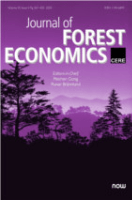
Journal of Forest Economics
Scope & Guideline
Exploring the Intersection of Economics and Ecology
Introduction
Aims and Scopes
- Economic Analysis of Forest Management:
The journal focuses on the economic aspects of forest management, examining how economic principles can be applied to optimize forest resources, including labor, capital, and land use. - Sustainable Forest Practices:
Research often addresses sustainable practices in forestry, exploring how economic incentives can promote environmentally friendly practices and enhance ecosystem services. - Policy Implications in Forestry:
The journal seeks to inform policy development by providing empirical evidence and theoretical frameworks that highlight the economic impacts of forest-related policies. - Integrated Frameworks for Forestry:
The integration of various modeling frameworks to analyze complex interactions within forestry, including ecological, social, and economic dimensions, is a consistent theme. - Valuation of Forest Ecosystem Services:
A significant focus on the economic valuation of ecosystem services provided by forests, which aids in understanding their contribution to human welfare and biodiversity.
Trending and Emerging
- Climate Change and Forestry:
There is an increasing emphasis on the intersection of climate change and forestry, particularly regarding how forest management can contribute to climate mitigation and adaptation strategies. - Ecosystem Services and Payments for Ecosystem Services (PES):
A notable trend is the growing interest in the economic valuation of ecosystem services and the implementation of PES schemes, which incentivize conservation and sustainable management. - Impact of Globalization on Forest Resources:
Research examining the effects of globalization on forest degradation and management practices is emerging, particularly in relation to trade dynamics and environmental impacts. - Social Dimensions of Forest Governance:
There is a rising focus on the social aspects of forest governance, including community rights, social mobilization, and the impact of policies on local populations. - Technological Innovations in Forestry:
The integration of new technologies, such as remote sensing and advanced modeling frameworks, is becoming increasingly relevant in analyzing and managing forest resources.
Declining or Waning
- Traditional Timber Production Economics:
Research specifically centered on traditional timber production economics appears to be waning as the focus shifts towards broader ecosystem services and sustainability issues. - Static Models of Forest Economics:
There seems to be a decrease in the publication of studies utilizing static economic models, as more dynamic and integrated approaches gain traction in addressing contemporary challenges. - Single-Factor Analysis of Forest Policies:
Papers analyzing forest policies in isolation, without considering the multifaceted interactions between economic, environmental, and social factors, are becoming less common.
Similar Journals

BALTIC FORESTRY
Elevating Global Discourse on Forest ConservationBALTIC FORESTRY, published by the INST FORESTRY LRCAF in Lithuania, is a prominent academic journal that serves as a platform for disseminating cutting-edge research in the field of forestry. With an ISSN of 1392-1355, this journal is dedicated to advancing knowledge on sustainable forest management, ecological impacts, and resource conservation, among other vital topics. As of 2023, it has been categorized in the Q3 quartile for forestry in Scopus, indicating its solid reputation among peer-reviewed publications, ranking #95 out of 174 in the realm of Agricultural and Biological Sciences. BALTIC FORESTRY features contributions from researchers across the globe and encourages innovative approaches to solving contemporary challenges in forestry, making it an essential resource for professionals, scholars, and students alike. Although it operates under subscription-based access options, the journal's commitment to fostering academic discourse is unwavering, aiming to bridge the gap between theory and practice in forest science.

FORESTRY
Advancing forestry knowledge for a sustainable future.FORESTRY is a prestigious journal dedicated to the advancing knowledge and innovative practices in the field of forestry, published by Oxford University Press. Established in 1927, it encompasses a rich history of scholarly contributions and has evolved to maintain its relevance, addressing contemporary issues and research in forestry and related disciplines. With an impressive Q1 ranking in the category of Forestry, this journal holds a notable position within the Scopus rankings, being placed 20th out of 174 in the Agricultural and Biological Sciences domain, highlighting its significant impact with an 88th percentile standing. Researchers, professionals, and students can access critical insights into forestry management, ecology, and policy, facilitating informed decision-making and fostering sustainable practices. While Open Access options are currently not available, the journal's rigorous peer-review process ensures the publication of high-quality research that contributes both to academic advancement and practical applications in forestry worldwide. The comprehensive coverage from 1927 to 2024 makes FORESTRY an invaluable resource for anyone invested in enhancing the field of forestry.
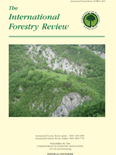
INTERNATIONAL FORESTRY REVIEW
Connecting Research and Practice in Forest ManagementINTERNATIONAL FORESTRY REVIEW, published by the Commonwealth Forestry Association, stands as a vital resource for researchers, professionals, and students in the fields of ecology, forestry, and environmental science. With an ISSN of 1465-5489 and a robust E-ISSN of 2053-7778, this journal has been disseminating impactful research since its inception in 1999, and continues to do so into 2024. The journal enjoys a prominent Q2 ranking across multiple categories in 2023, including Ecology, Forestry, and Geography, Planning and Development, reflecting its significance in the scholarly community. Although it operates on a traditional access model, the content published is pivotal for advancing knowledge and addressing pressing issues in forest management and sustainability. Situated in the United Kingdom, the journal aims to provide a multidisciplinary platform that encourages collaboration among researchers and practitioners, ultimately fostering sustainable forestry practices worldwide.
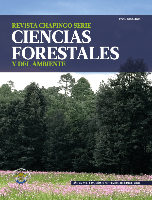
Revista Chapingo Serie Ciencias Forestales y del Ambiente
Fostering collaboration in the pursuit of ecological excellence.Revista Chapingo Serie Ciencias Forestales y del Ambiente, published by Universidad Autónoma Chapingo, serves as a prominent platform for scholars and practitioners in the fields of Ecology and Forestry. Established in 2001, this open access journal has made significant strides in disseminating research that addresses pressing environmental issues, particularly within the Mexican context. With an ISSN of 2007-3828 and E-ISSN of 2007-4018, it has been recognized for its contributions, earning a Q3 ranking in both Ecology and Forestry categories as of 2023. The journal is pivotal in fostering collaboration and knowledge exchange among researchers, professionals, and students dedicated to understanding and preserving forest ecosystems. Access to its rich content is unrestricted, enhancing visibility and impact for innovative research and practical applications in sustainable management and conservation practices.

Journal of Forest Research
Pioneering research in forest science and ecosystem management.Welcome to the Journal of Forest Research, a pioneering publication dedicated to advancing the field of forestry and sustainable ecosystem management. Published by Taylor & Francis Ltd and boasting an impressive Q2 ranking within its category, this journal highlights significant research contributions and innovative practices in forest science. With an ISSN of 1341-6979 and E-ISSN of 1610-7403, the journal spans a fruitful history from 1996 and continues to be an influential platform up to 2024. The Scopus rank places it at an esteemed #55 out of 174 in the realm of Agricultural and Biological Sciences, reflecting its high impact within the community. While this journal is not open access, it offers targeted content for researchers, professionals, and students seeking to deepen their understanding of forest ecosystems and promote sustainable practices. Join us in exploring the intricate relationship between society and forests, and contribute to a crucial dialogue on environmental stewardship.
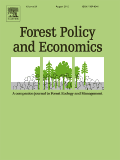
Forest Policy and Economics
Fostering impactful discussions on forest policy and economics.Forest Policy and Economics is a leading international journal published by ELSEVIER, dedicated to advancing the field of forest management and economics. With an impact factor indicative of its relevance, this journal holds prestigious Q1 rankings across multiple categories, including Economics and Econometrics, Forestry, Management, Monitoring, Policy and Law, as well as Sociology and Political Science. Given its robust Scopus rankings, it places within the top tiers of its fields, making it an essential resource for researchers, professionals, and students alike. Since its inception in 2000, the journal has provided a platform for innovative research and comprehensive reviews addressing critical issues in forest policy and economics until 2024. The journal fosters scholarly discussion on sustainable practices, policy design, and economic frameworks essential for effective forest management in the context of global environmental challenges. As a crucial source of knowledge, Forest Policy and Economics is invaluable for those striving to influence policy and practice within the forestry sector.
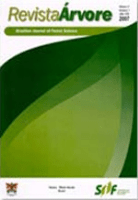
REVISTA ARVORE
Connecting Scholars to Advance Forestry ScienceREVISTA ARVORE is a distinguished, peer-reviewed journal in the field of Forestry, published by Universidade Federal de Viçosa in Brazil. Renowned for its commitment to open access since 2002, this journal facilitates the dissemination of innovative research and knowledge to a global audience, encompassing topics from sustainable forest management to ecological conservation. With an impact factor reflective of its engagement in the community and a current Scopus ranking that places it in the 28th percentile among journals in Agricultural and Biological Sciences, it provides a vital platform for both emerging and established scholars. The journal is indexed under ISSN 0100-6762 and E-ISSN 1806-9088, making it accessible to a wide readership. As it converges its publication years from 2006 to 2024, REVISTA ARVORE aims to contribute significantly to the advancement of forestry science and practices, thereby encouraging environmental sustainability and innovation within the field.

BOSQUE
Bridging Theory and Practice in Forestry ScienceBOSQUE, published by Universidad Austral de Chile, Facultad de Ciencias Forestales, stands as a pivotal platform for advancing the field of forestry and related environmental sciences. With an ISSN of 0717-9200, this journal has been committed to disseminating original research, reviews, and case studies essential for understanding forest ecosystems and management practices since its inception in 2006. As of 2023, it holds a Q3 ranking in the forestry category, showcasing a significant yet developing influence in the broader academic landscape, evidenced by its Scopus ranking placing it at the 12th percentile in Agricultural and Biological Sciences - Forestry. While boasting a diverse range of articles, BOSQUE promotes open access to a growing community of researchers, professionals, and students eager to contribute to sustainable forest management and conservation efforts. The journal continues to foster critical dialogue and innovation, making it an invaluable resource for those dedicated to enhancing forest sciences.

Sumarski List
Connecting Research and Practice in Forestry ExcellenceSumarski List, published by the Croatian Forestry Society, serves as a key platform for the dissemination of knowledge and research within the field of forestry. Established in the early 1980s, this journal has maintained a consistent commitment to advancing the understanding of forest management, ecology, and conservation. With an ISSN of 0373-1332 and an E-ISSN of 1846-9140, it provides researchers and practitioners with valuable insights into current trends and practices in forestry, although it currently falls within the Q4 category in the 2023 forestry rankings. The journal is accessible primarily in printed format, promoting rigorous scholarship and discussion. The important contributions of Sumarski List are vital for fostering a greater appreciation of forestry in Croatia and beyond, making it an essential resource for those dedicated to tackling the pressing challenges in forest ecosystems.
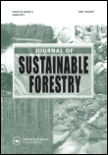
Journal of Sustainable Forestry
Exploring the intersection of ecology and forest management.Journal of Sustainable Forestry is a premier academic publication dedicated to advancing knowledge and practices in the field of sustainable forestry and environmental management. Published by Taylor & Francis Inc in the United Kingdom, this journal has been a cornerstone for researchers and professionals since its inception in 1992. With an impressive reputation, it boasts a 2023 Q2 ranking in Food Science, Forestry, and Geography, Planning and Development, highlighting its significant contribution to interrelated disciplines. The journal’s impact is further underscored by its Scopus ranking, especially in Forestry where it holds the 43rd position out of 174 publications, placing it in the 75th percentile. Although not open access, the journal remains committed to providing innovative research and practical insights into forest management, ecological sustainability, and policy development. As the field of sustainable forestry continues to evolve, the Journal of Sustainable Forestry serves as an essential resource for those committed to advancing sustainable practices globally, fostering a deeper understanding of how sustainable forestry can contribute to environmental resilience and biodiversity conservation.